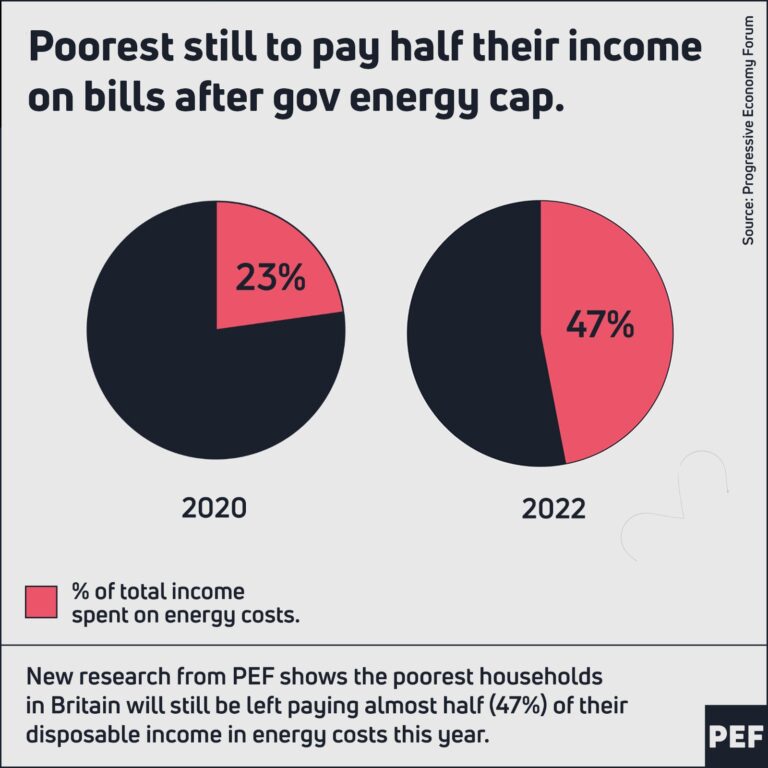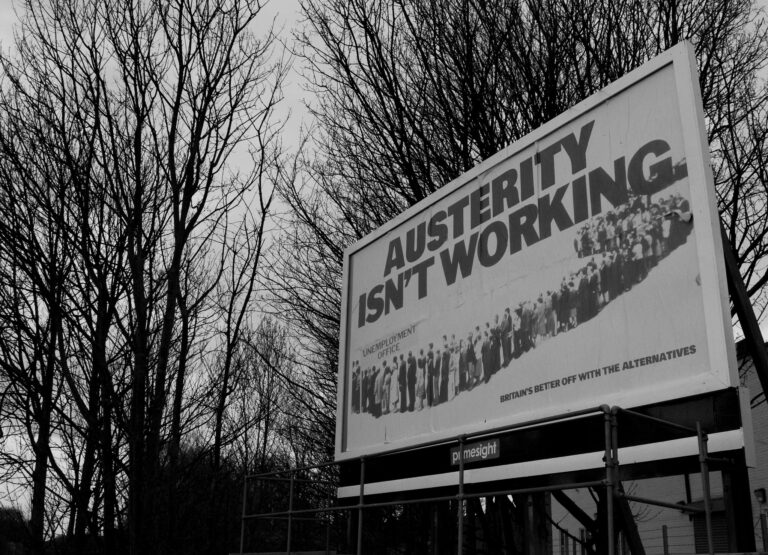- THE CHALLENGE
1. The focus of economic policy should be on maintaining a high, sustainable level of employment. This is correct theoretically, practically, and socially. It counterbalances the capitalist market system’s tendency not to create a high level of employment; it largely pays for itself in generating revenue: it is socially right because it avoids the waste of human resources entailed by involuntary unemployment, crowding in activity that would otherwise be crowded out.
Sustainability is a key requirement for any policy of high employment today. The workforce must be employable in work for which there is both demand, and which, by respecting nature, also secures the future of the planet.
These are general propositions for policy valid for most advanced economies, but they have a special application to our country at this particular moment in time.
2. The consensus of forecasts is that the British economy will be more than 10% smaller this year than in 2019, with only a moderate recovery in 2021. Unemployment is set to rise to at least 8 per cent (2.5m), with underemployment almost double this. The 16-25 age group is projected to take a disproportionate hit, shouldering up two fifths of the rise of unemployment to a million despite representing only a fifth of the workforce.
The roll out of the new vaccines and extension of the furlough scheme to March may postpone the worst effects of the predicted downturn but they offer no basis for sustained economic recovery: little or nothing is in place to stop the gradual haemorrhaging of businesses and their supply chains. This means that job retention, which aims to preserve many jobs which two lockdowns have made obsolete, must urgently give way to job creation.
In conclusion the economy has to afford more employment opportunities, especially for the young. British capitalism – currently biased to short term value creation and rent extraction (rentier capitalism) – has to be repurposed to long-term, environmentally sustainable value creation. The international trade and financial framework must be as accommodative to these aims as possible. If these are the medium and long term aims, then the foundations must be incorporated in any short term programme.
B. SHORT-RUN RECOVERY
- There are two urgent things the government should do now.
It must establish a tripartite Economic Recovery Board, incorporating a Taskforce on work. The Board’s task would be to identify those economic sectors, nationally and regionally, which could be a major source of future employment. These are likely to be, indeed should be:
the green economy
the rural economy
the digital economy
the caring economy
the mentoring economy
The Task Force on work should be charged with identifying work and educational opportunities now available and linking them to these potentially expanding sectors. This would give short-term work and training schemes the focus and purpose which is largely lacking from emergency programmes – a bridge between the Job Retention phase of Covid-19 and the Job Creation phase which has to follow it.
Initiatives deserving urgent consideration are:
- The government should build on its own Kickstart programme, the experience of the Future Jobs Fund and the model of Roosevelt’s Civilian Conservation Corps by ensuring all unemployed 18-25 year olds are offered work and training in urban conservation, rural regeneration and digital skills. Kickstart is supposedly to generate 300,000 placements for the young people, largely from the private sector. No one now expects hard-pressed businesses to offer employment on anything like this scale in the coming months. So the public sector will need to become “employer of last resort”. There should be a youth guarantee of work and/or training. The Roosevelt scheme provided millions of jobs for young people in
“the prevention of forest fires…plant, pest and disease control, the construction, maintenance and repair of paths, trails and fire-lanes in the national parks and national forests and such other work…as the President may determine to be desirable”.
A youth led National Youth Corps (NYC) should be created in the same Rooseveltian spirit ( one contemporary model is the Austrian Zivildienst) as the umbrella organisation in which volunteers, paid the minimum wage for a year and combining at least 3 months training, are able to work in a range of exciting and socially valuable projects across the country – giving them a vital role and stake in stimulating recovery. The NYC should go beyond Kickstart to stimulate local and central government, the private and third sectors to develop and create work-rich projects (see below), connecting volunteers to opportunities via a dedicated App, offering mentoring and crucially the chance of working away from home. With sufficient urgency such programmes could be up and running within the next six months.
- All regional and local authorities should be asked to bring forward plans for work which needs to be done in their areas for strengthening local economic resilience and improving local amenities and which now languish for lack of money. Examples would be the widening of the Manchester Ship Canal and retrofitting local properties to create thousands of new jobs as well as scaling up local training programmes.
The government should allocate a quantum of money to regional and local authorities for at least one year leaving it the authorities themselves, together with private businesses, to decide what jobs and training schemes they want to create.
- These initiatives should be supported by measures to sustain demand, given a savings ratio approaching 30 per cent, the imposition of a second lockdown and the likelihood of a thin Brexit deal (or No Deal). There should be an acceleration and expansion of its national infrastructure programmes, along with a 12 month temporary cut in VAT for all goods and services which in 2008 proved a very effective stimulus in response to the financial crisis.
The government advanced a £8bn infrastructure spending earlier this summer. It should be expanded. The 3 year Comprehensive Spending Review should not be deferred, but instead brought forward to be announced in March 2021 at the latest. In particular the £40bn five year infrastructure plan should be front-loaded into the next two years, with priority given to big environmental projects, social housing and NHS/social care. In doing so it would simply be following the advice of respected organisations like the International Monetary Fund. It writes
“Empirical estimates based on a cross-country data set and a sample of 400,000 firms show that public investment can have a powerful impact on GDP growth and employment during periods of high uncertainty—which is a defining feature of the current crisis. For advanced and emerging market economies, the fiscal multiplier peaks at over 2 in two years. Increasing public investment by 1 percent of GDP in these economies would create 7 million jobs directly, and between 20 million and 33 million jobs overall when considering the indirect macroeconomic effects.
FOLLOW THROUGH – REFORM TO UNDERPIN RECOVERY
- Launch the investment covenant. A newly created bank ( either an arm of the National Investment Bank or specially created “ bad” or refinancing bank) will buy corporate debt of distressed companies, partially underwrite the first tranche with a credit guarantee and package up the loans into single tradeable “ reconstruction” or “build-back-better” bonds. Banks and Insurance Companies will be required to hold these bonds as up to 10 per cent of their balance sheet assets. Companies accepting this debt relief will be contractually required to bring forward a proportional increase in investment spending – and accept reciprocal obligations (see below).
- Roll over and extend all existing loan schemes but with reciprocal obligations (executive pay, commitment to train, participation in Kickstart and NYC, union recognition, adherence to Social Value Act, sign up to Corporate Governance Code, Sustainable development goals). These obligations should also be incurred by all companies being relieved of debt.
- Transform the British Business Bank into a National Investment Bank, properly capitalised and with power to lend.
- Banks to publish term structure of lending as part of drive for more long termism. A comply or explain regime to be created to explain why lending remains short term.
- Corporate Governance Code to be toughened and adherence made mandatory
- Pilot a perpetual bond
INTERNATIONAL
- Follow through any EU trade deal with negotiations on service sector access, improved access for goods and mutual recognition. Either leading to eventual full membership of single market and customs union or a unique European Economic Area plus
C. THE MEDIUM AND LONG TERM
British capitalism and financial system must be restructured around the pursuit of social purpose. Only thus can it take full advantage of digitalisation and protect natural resources and habitats in such a way as satisfies the demand for social fairness and equity between human demands and the logic of nature. Without such an economic and social settlement, the risk is ongoing degeneracy ultimately provoking civil unrest.
- Macro Policy
- Establish a new Macroeconomic Policy Framework which integrates Fiscal and Monetary Policy in pursuit of the single objective of a non-inflationary level of high employment. This recognises that monetary policy on its own cannot shield the economy against shocks to supply or demand or restore full activity level following a shock. The Bank of should be given a dual employment/inflation mandate like the Fed. It should aim to keep down borrowing costs for the government; with forward guidance in the form of a promise not to raise Bank Rate till unemployment has fallen below a certain percentage. We cannot afford a macro-policy just based on an inflation target and a passive fiscal policy except in emergencies.
- Fiscal policy framework. Borrow for capital spending but balance current revenues and spending. Accept debt service limit (10 % of tax revenues?)
- Increases in capital gains, corporation, inheritance taxes. Introduce environmental taxes.
- Set in train the reorganisation of tax system around the Mirrlees report (proper taxation of capital and wealth, environmental taxes, reform of council tax, try to avoid high marginal rates for low earners)
- Build in green targets for all public capital projects (Green New deal)
- Up to 600,000 public sector jobs could be created, with more than half in the NHS and adult social care, as part of rebuilding of public capacity and reversing hollowed out civil service.
- Stakeholder Capitalism
- The objective is to create a capitalism that is driven by purpose, long term value creation and sustainability – balancing the needs of all stakeholders and in partnership with an agile, capable, well-resourced public sector.
- Legislate for the multi- stakeholder company. A new Companies Act incorporating hardened up Corporate Governance and Stewardship Codes.
- Encouragement of varying ownership forms – co-operatives, mutuals, public benefit companies, new forms of collective ownership.
- Towards the digital trade union. Trade unions to use IT to ballot members etc as part of digital enablement of participatory trade unionism and 21st century collective bargaining.
- Consolidate National investment bank with scaled up regional branches
- Organise a regional industrial strategy. Key components to include a “scale-up” ecosystem around Catapult network, creating regional growth hubs focused on key sectors – space, robotics, new pharma. AI applications etc
- Overhaul CMA
- Support with roll out of British style Fachhochschule ( universities of applied science)
- Overhaul educational curriculum with wider range of skills – emotional intelligence, digital, ethics etc
- The social settlement
- The guiding principles must be universality of provision and fairness.
- All forms of work – whether part time, flexible or full time – to carry the same employment rights, creating a British system of flexi-security.
- Fully fledged National Youth Corps as part of a Work Corps for all with training arm
- Universal basic income for children up to 18 – child benefit etc
- Universal basic services
- Restructure care sector into NHS as part of drive for public health resilience.
- Properly funded universal national tutoring service
- Pursue Devolution Agenda , including tax raising powers (eg local income tax) for regional authorities.
- International
- The system needs to be more resilient and sustainable
- Procurement policy for essential services, particularly health and food not to be dependent on global supply chains.
- Movement of capital and labour should also be aligned with national purposes
- Work with EU and Biden’s US to reinvigorate WTO
- Joint action on tax havens and tax abuse by High Tech
- Intense commitment to UN Sustainable Development and climate change goals
- Have a referendum on re-joining the EU in 10 years time









